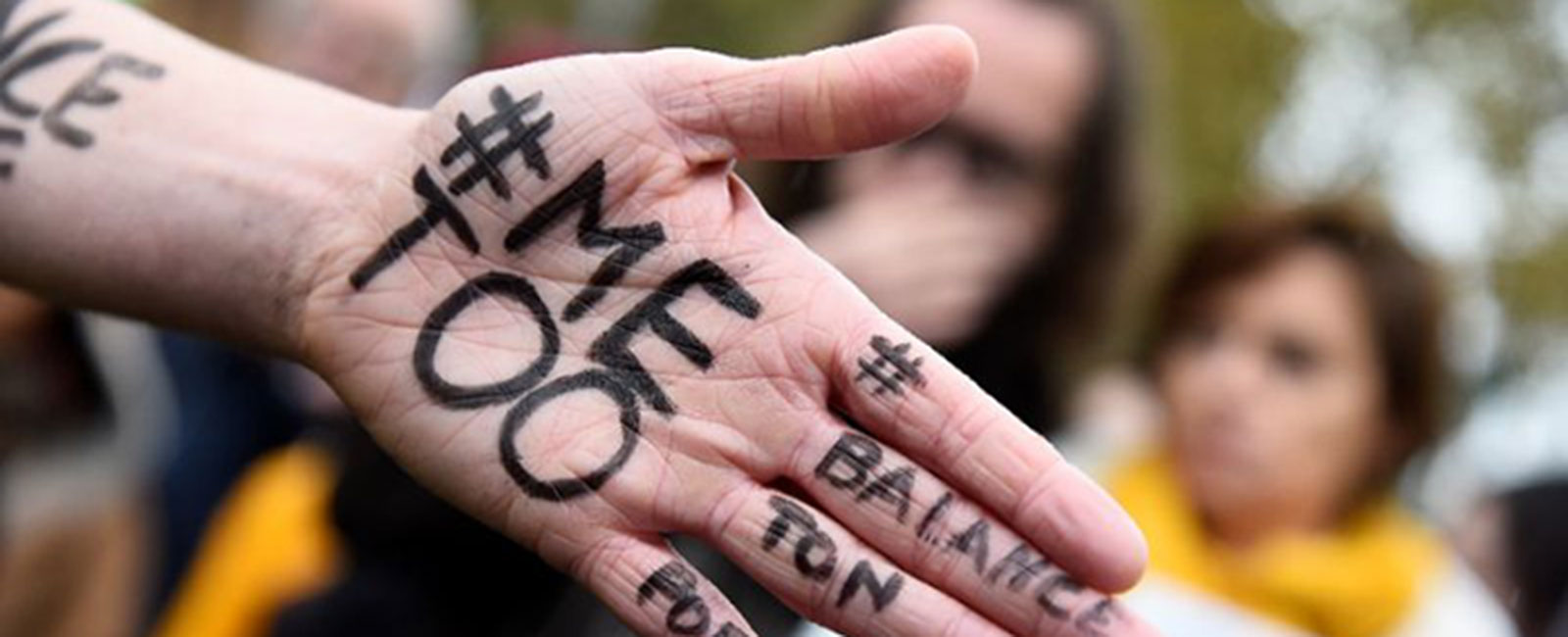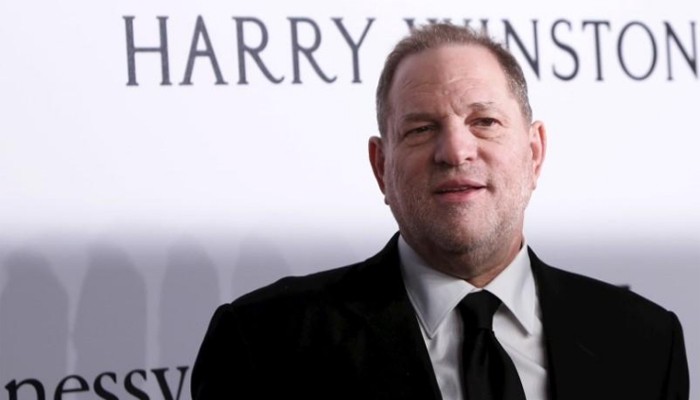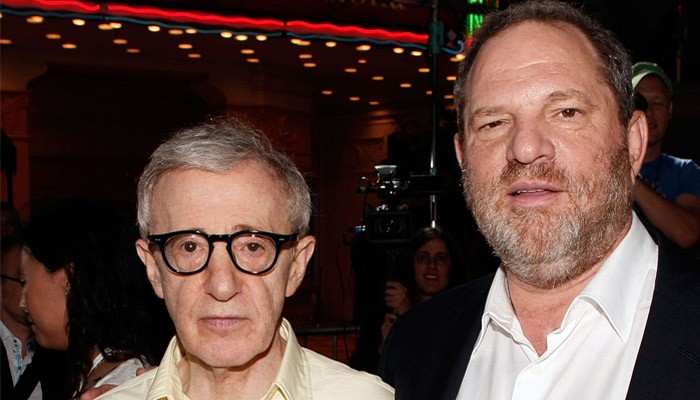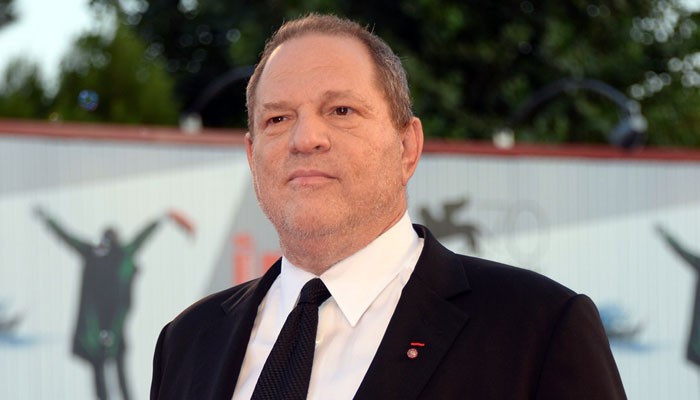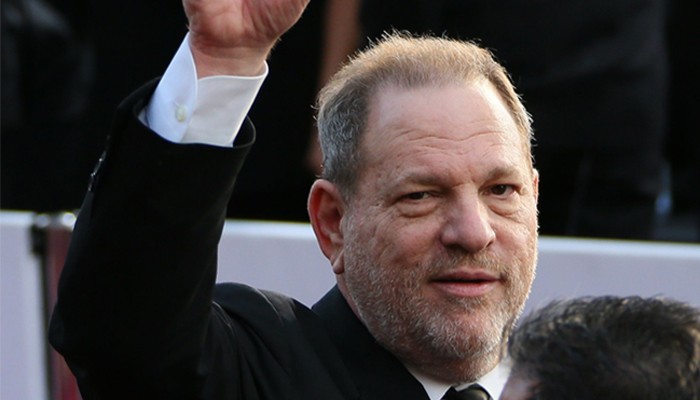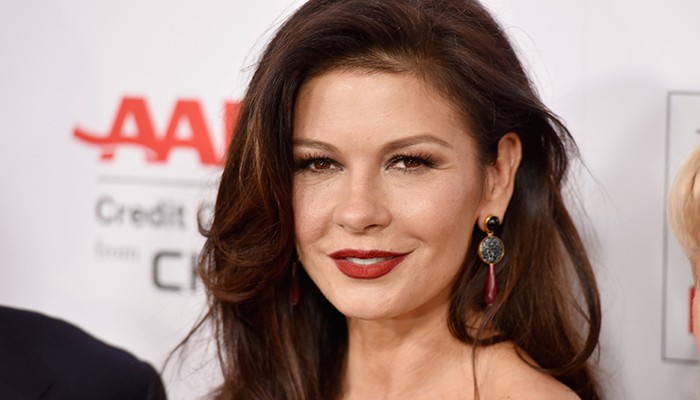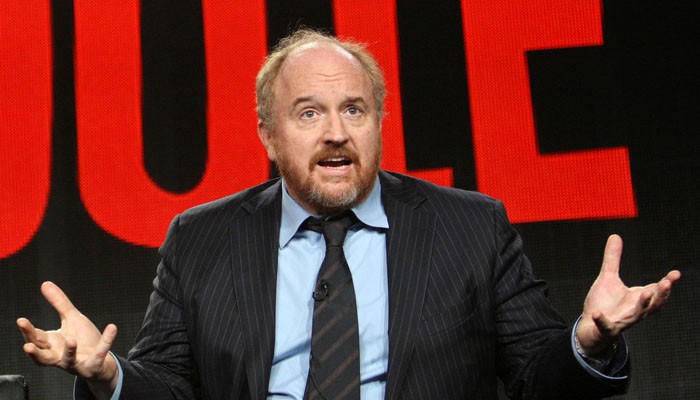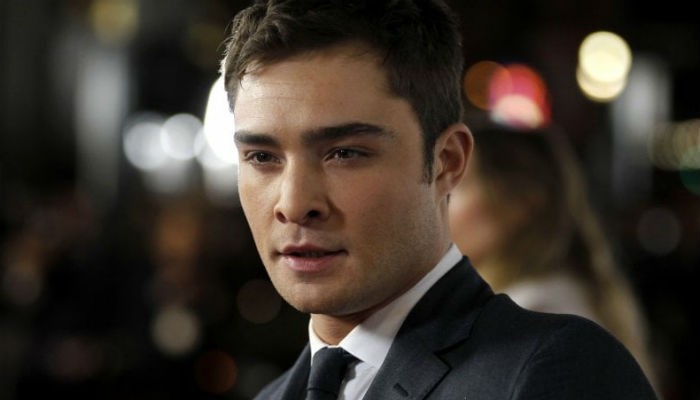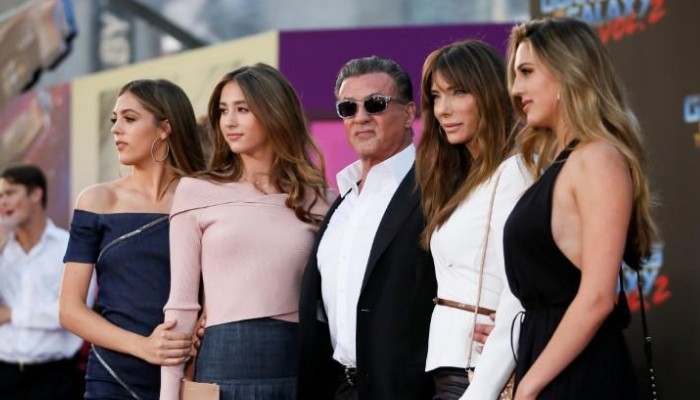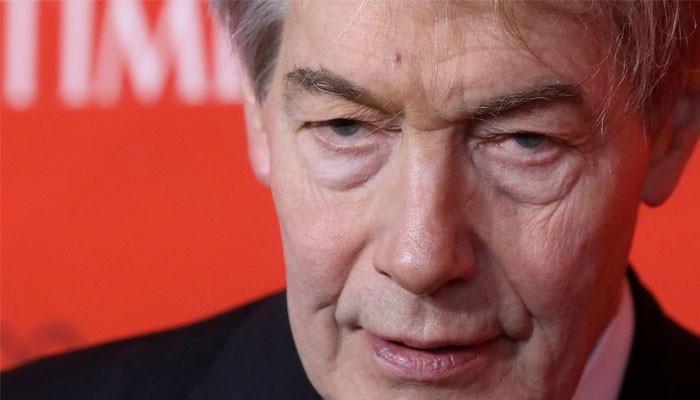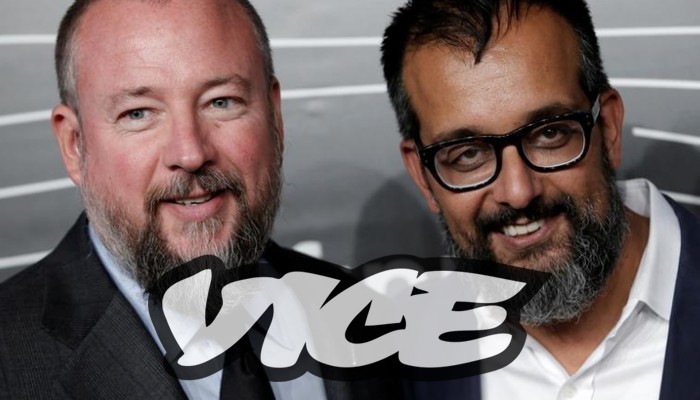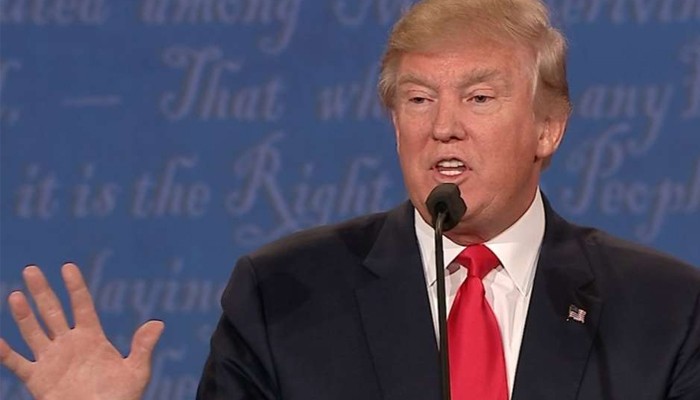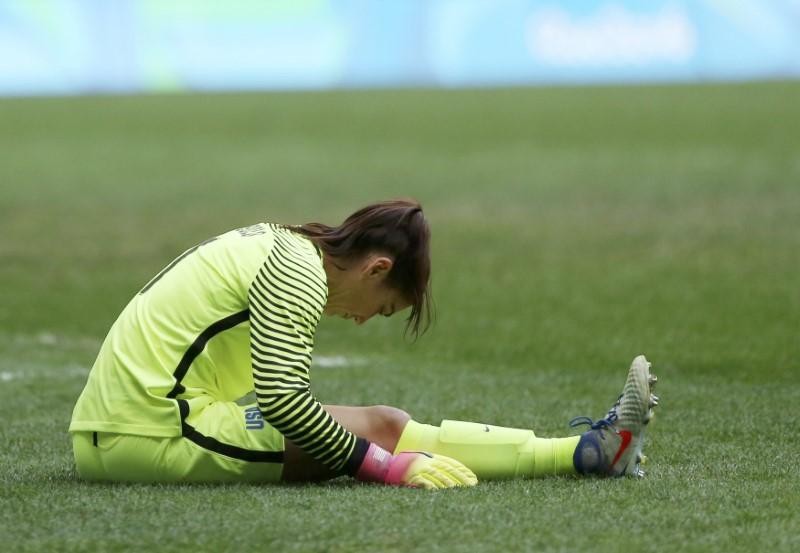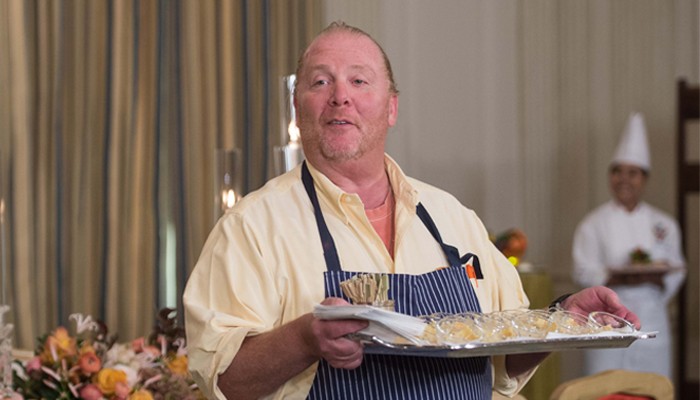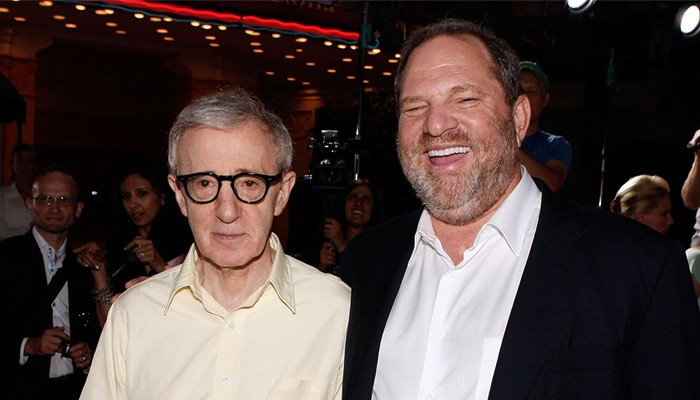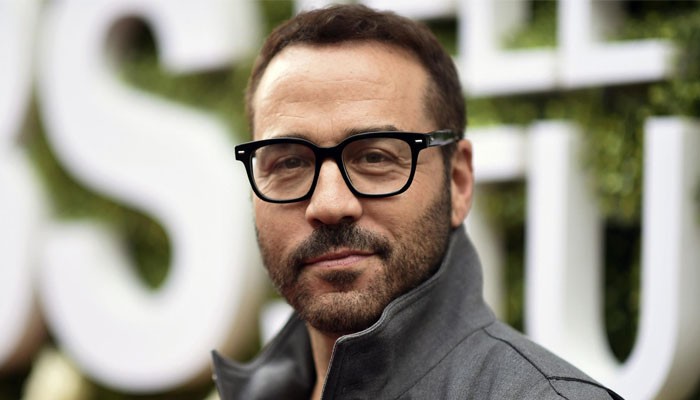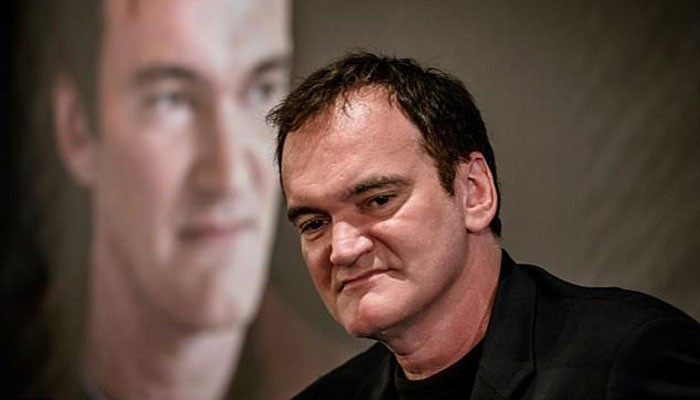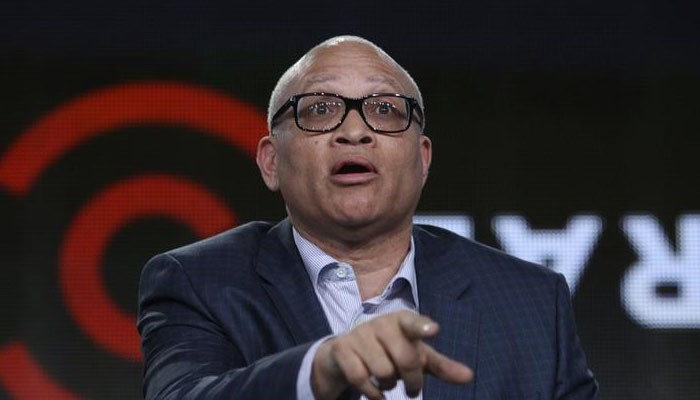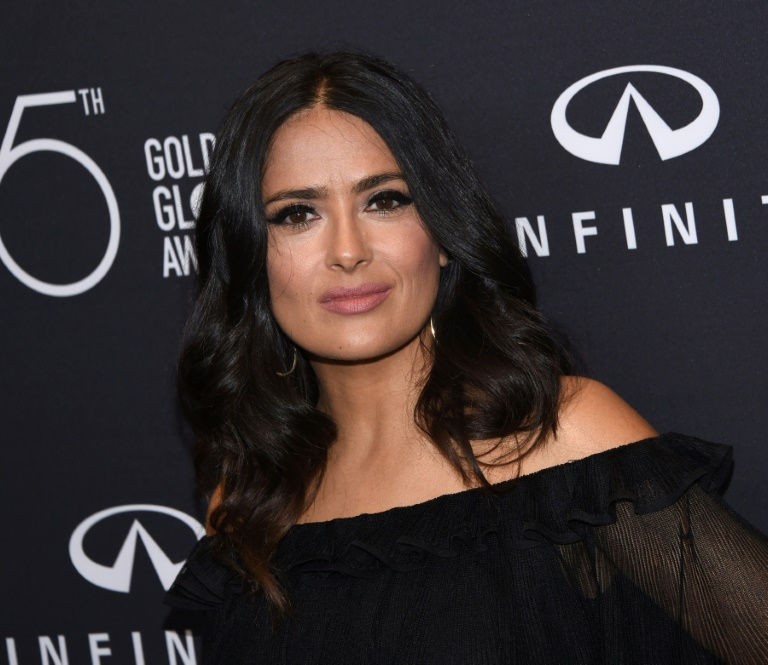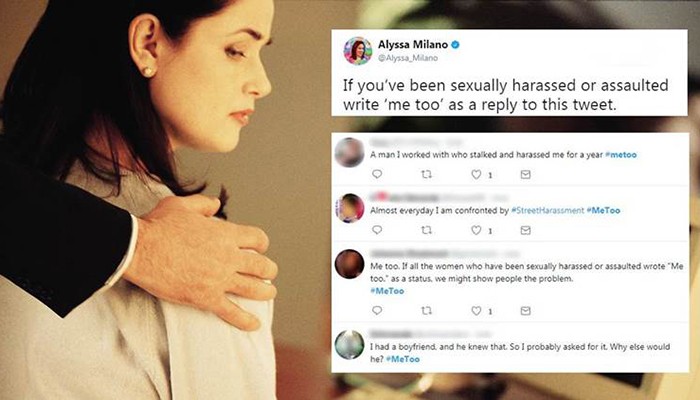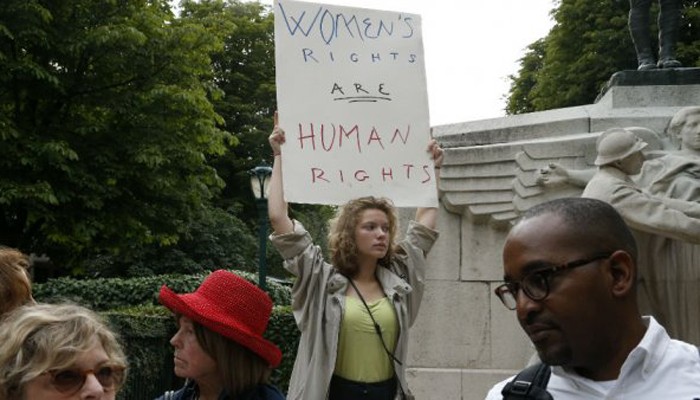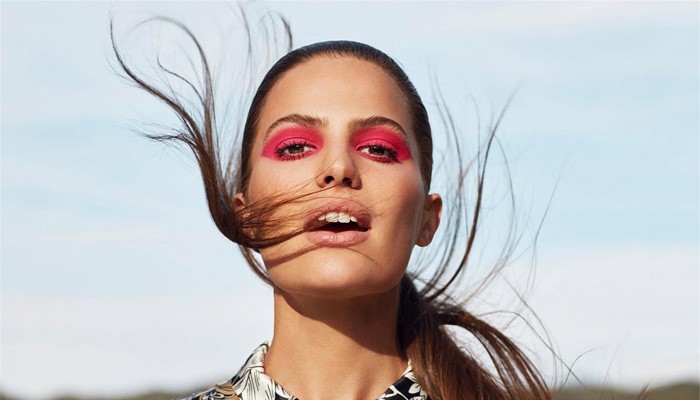#MeToo and the worldwide reckoning it brought in 2017
'Men sexually harassed because they could. Women are talking today because, in this new era, we finally can'

2017 rattled the world enough to make sure everyone heard about a very active — yet always “sidelined” — monster: the creaking, age-old patriarchy.
Early October, The New York Times and the New Yorker in an explosive exposé named Hollywood producer and movie mogul Harvey Weinstein as the alleged perpetrator in numerous cases of sexual assault, abuse, misconduct, and rape.
It turned into a snowball, juggernauting through every industry and cleaning out sexual predators.
Actress and model Rose McGowan — alongside dozens of others, comprising Ashley Judd and Gwyneth Paltrow — also came forward with her own accusations against Weinstein.
On the other hand, Weinstein — a famed name behind big films such as The King’s Speech and whose movies have earned upwards of 300 award nominations — “unequivocally denied any allegations of non-consensual sex” during his three-decade career and threatened to sue the NYT.
Weinstein falls
Fall 2017, thus, became a heart-wrenching period for many around the world, triggering traumatic memories.
Weinstein — boasting a prominent position in the entertainment industry, having founded with his brother the production studio Miramax and introducing numerous leading names — consequently tumbled down the stairs, so to speak.
Over the next three months, he was ousted from The Weinstein Company, the Television Academy, as well as the boards of the British Academy Film Awards (BAFTA), Producers Guild of America, and the Academy of Motion Picture Arts and Sciences — the organisation behind the Oscars.
Weinstein’s Du Bois medal — bestowed by the Harvard University — was retracted, his BFI Fellowship (at the British Film Institute) revoked, and the Honours Forfeiture Committee was considering, as of October 25, stripping away his CBE (Commander of the Most Excellent Order of the British Empire).
French President Emmanuel Macron, in a televised interview, decided to take “steps to revoke the Legion d’Honneur (Legion of Honour)” from Weinstein.
Even Cannes Film Festival’s organisers said they were "dismayed" by Weinstein’s assaults.
The American and British authorities also became involved in the exponentially expanding case after receiving “credible and detailed narrative” from other accusers — who wished to remain anonymous.
In the mayhem that ensued, Weinstein’s wife left him.
How deep did the scandal go?
Shocking information revealed in November by investigative journalist Ronan Farrow claimed the god-like movie tycoon had attempted to — and succeeded — numerous times in silencing his victims, going as far as to having them sign non-disclosure agreements (NDAs), hiring private investigators and intelligence firms to stalk, meet under false pretense, and threaten those willing to speak to the media, and pay off others.
As Asia Argento — an Italian film actress and director and one of Weinstein's accusers — says, the report was "terrifying" but quite true to the facts.
The reason so many women did not have the confidence to step up was the producer's tactics, which included sending "reports" — about the brave ones who did dare attempt to speak out — to media to discredit them.
“I know he has crushed a lot of people before,” Argento added.
Weinstein’s immediate subordinates and assistants "served as a 'honeypot' — they would initially join a meeting along with a woman Weinstein was interested in, but then Weinstein would dismiss them, leaving him alone with the woman", a female employee with the Weinstein Company company told Farrow.
The situation became even more chilling when, in an interview on French TV, Mickael Chemloul — Weinstein’s driver — disclosed he had comforted numerous “tearful aspiring actresses” after their private meetings with the abuser.
In addition, some of the people employed at the Weinstein Company wrote an open letter, requesting “their employer to release them from the NDAs that stop them speaking publicly about what they have experienced and witnessed”.
Powerful men fall as the ‘Weinstein effect’ spreads
Taking into account Weinstein’s tactics to hush up the victims of his sexual misconduct, it was obvious why so many of the victims were hesitant and, thus, remained silent for years on end.
Weinstein, 65, was a hawk-eyed predator who would keep an eye on emerging talent, stories with huge potential, and newbies looking to find a “way in” to the industry — elements he utilised but also kept in check with his horrible mood swings, bullying, and threats.
Those he “helped” at Hollywood’s entrance door would fall under his fear and, needless to say, be bound by gratefulness.
Yet, that is exactly what also helped them band together to form a force so strong that it juddered the entertainment world to its core.
As Oscar-winner Catherine Zeta-Jones said, "Let’s hope that big old dinosaur of men — thinking they can get away with that sort of behaviour — is extinct as of now."
Once the ball had rolled, however, it continued gaining momentum and growing in size.
Entertainment
Other big names in the entertainment industry that subsequently followed included Horrible Bosses star Kevin Spacey, comedian Louis CK, filmmaker Brett Ratner, as well as director and screenwriter James Toback.
Spacey — who stands accused in at least 20 harassment cases — was slammed for coming out in his apology statement to accuser Anthony Rapp.
Consequently, Netflix — after initially deciding to end House of Cards but retracting the decision some days later — announced it was letting go of Spacey and continuing the TV show without him to focus on Robin Wright.
Emmy-winning CK — whose publicist said the comedian was “not going to answer any questions” — was accused by five women in another NYT report.
Ratner — whose films include X-Men: The Last Stand and Rush Hour — had allegedly either performed inappropriate sexual acts in front of his victims or made unwanted sexual advances in incidents dating back to the 1990s, the LA Times had said.
At least 38 women accused Toback of unwanted sexual encounters over a period of decades, with another 200 joining in the allegations later.
Fox News host Bill O’Reilly was ousted in April after it was revealed he had paid millions of dollars to five women to silence them over their sexual assault claims.
Then, Roger Ailes — one of Fox's bosses — stepped down in July following accusations of sexual harassment.
And American comedian Bill Cosby went on trial this summer for "drugging and sexually assaulting a woman" as well as many others. It ended with a hung jury.
On the other hand, many other actors and directors were also named in the overwhelming number of sexual harassment cases.
The LAPD announced they were investigating a rape allegation made against British Gossip Girl actor Ed Westwick.
Action star Steven Seagal and Dustin Hoffman also faced allegations of sexual abuse, with the latter saying the claim was 'not reflective of who I am'.
Richard Dreyfuss and Star Trek's George Takei were also slapped with claims of sexual misconduct, which both denied.
Transparent star Jeffrey Tambor, 73, was also among the accused with at least two claims of sexual misconduct, while Mad Men's Matthew Weiner was accused of sexually harassing the series' writer.
Rocky heartthrob Sylvester Stallone — also struck with accusations of sexual abuse in the 1990s — "categorically disputes" the claim, whereas pop-rock band Backstreet Boys’ Nick Carter denied a 2002 rape allegation.
Actress Miriana Trevisan alleged that Cinema Paradiso director Giuseppe Tornatore sexually assaulted her.
After Le Devoir reported nine women’s allegations against Canadian comedy festival Just for Laughs founder Gilbert Rozon, the 62-year-old resigned from his own company as well as the committee organising Montreal’s 375th-anniversary events and stepped down as VP of the Montreal Board of Trade.
Prime Minister Justin Trudeau, in response, said society was “seeing a moment of awakening”.
"I got to work first hand with an issue that 25 years later we're still just scratching the surface on," he said, adding later that "there is still so much work to do."
“It doesn’t matter how much power you have, how much influence you have, it’s never all right.”
Other professions were also looped in, with rap mogul Russell Simmons stepping down following sex accusations and fashion photographer Bruce Weber being accused of sexual harassment.
Filmmaker Roman Polanski — who, in 1977, pleaded guilty in the US to having unlawful sex with the then-13-year-old Samantha Geimer but fled the country before he could be sentenced — received "a break" from the justice system when Swiss prosecutors ruled out charges against him in a new rape claim.
Trickling down further, the shockingly huge number of sexual assault claims then surfaced in the fields of journalism, politics, sports, and food.
Journalism
TV host Charlie Rose — one of the most prominent American interviewers — was suspended by multiple networks after eight women, who worked at Charlie Rose Inc or aspired to a job there, accused him of unwanted sexual advances, a Washington Post report said.
Matt Lauer, Mark Halperin, Ryan Lizza — the star journalist known for the interview that led to White House aide Anthony Scaramucci's termination, and NYT’s White House correspondent Glenn Thrush were all ousted.
New-age media firm Vice Media also fired three employees on similar charges.
Politics
US President Donald Trump's comments, prior to his election, about grabbing women's genitals and getting away with it simply because he was too famous also caused quite the stir.
"I don't even wait. And when you're a star, they let you do it, you can do anything," he had told Access Hollywood’s celebrity interviewer Billy Bush at the time when the former was the billionaire host of the reality show The Apprentice.
It remains a bitter fact for many that all the infamous video clip led to was a discussion and the incumbent American head-of-state was never held accountable.
Other names in the politics comprised John Conyers, Al Franken, Roy Moore, former president George HW Bush — with at least two cases, one in 2003 and another later — as well as UK’s Defence Secretary Michael Fallon, Scottish minister Mark McDonald, and Austrian politician Peter Pilz.
Sports
Gymnasts McKayla Maroney and Aly Raisman alleged that their team doctor Larry Nassar assaulted them, while Hope Solo — a US women's soccer star — said ex-FIFA president Sepp Blatter touched her inappropriately.
"Our silence has given the wrong people power for too long, and it is time to take our power back. And remember, it is never too late to speak up," Maroney had said.
And then, professional football Hall-of-Famer quarterback Warren Moon denied the sexual harassment accusations his ex-executive assistant made against him.
Cuisine
US celebrity chef John Besh — who was the face of New Orleans cuisine and appeared on American TV programmes — resigned over sexual harassment allegations, followed by chef Mario Batali, who also left his food empire over sexual misconduct allegations.
The other side
Unsurprisingly, but appalling nevertheless, Woody Allen — who, himself, had faced allegations in the 1990s of abusing his adopted daughter Dylan Farrow — expressed fears pertaining to a “witch hunt atmosphere” post-Weinstein.
"A Salem atmosphere, where every guy in an office, who winks at a woman, is suddenly having to call a lawyer to defend himself. That's not right either,” he had said.
Allen, nevertheless, cushioned his statement with politically correct comments, saying he feels “sad” and hopes the Weinstein case — a scandal that has shaken Hollywood to its very roots — would lead to "some amelioration".
"Tragic for the poor women that were involved, sad for Harvey that (his) life is so messed up," Allen had told BBC.
Star Wars director JJ Abrams spoke about how he "had never heard" of any sexual misconduct on Weinstein's part, but similar to how Allen sweetened his response, he, too, softened his seemingly blunt comment, stating he had doubts about the movie mogul being "a lone operator".
"People knew that he was a bully but I didn't have a clue as to the extent," he had said.
In response to three allegations against him, producer Jeremy Piven had said the recent whirlpool of sexual misconduct allegations were putting careers in “jeopardy without a hearing, due process or evidence”.
“I hope we can give people the benefit of a doubt before we rush to judgement,” Piven had said.
"Continuing to tear each other down and destroy careers based on mere allegations is not productive on any level."
Jennifer Lawrence — an amalgamation of controversy herself and a product of ‘too much fame, too fast’ — couldn’t sit content either without making a comment that would leave sexual assault victims seething, saying she had a good working relationship with Weinstein.
"It was bizarre. I had heard that he was a dog but he was almost like paternal to me. He was never inappropriate with me," she had said, speaking of the time they worked together on Silver Linings Playbook and conveniently dodging having to choose a side.
To add the cherry on the top, celebrated director Quentin Tarantino — a close friend of Weinstein — revealed he had been aware of the producer's alleged misconduct toward women for years.
"I knew enough to do more than I did," he told the NYT.
But did he do more? No. Let that sink in.
As if that wasn’t enough, singer Morrissey defended both Weinstein and Spacey, saying the latter had been "attacked unnecessarily" and it was "ridiculous" that he was being erased from an upcoming film.
"Anyone who ever said 'I like you' to someone else is suddenly being charged with sexual harassment," he said, adding that the claims made by actor Anthony Rapp — Spacey’s accuser — "did not sound very credible to me".
"I don't know about you, but I was never in situations like this in my youth," he told German-language Der Spiegel.
"When you are in somebody's bedroom, you have to be aware of where that can lead to."
Inquired about his stance on Weinstein inviting aspiring actresses to his private hotel rooms, he said, "People know exactly what's going on and they play along […] Afterwards, they feel embarrassed or disliked. And then they turn it around and say: 'I was attacked, I was surprised'".
"But if everything went well, and if it had given them a great career, they would not talk about it," Morrissey claimed.
Supporting roles
Seth MacFarlane of Family Guy noted in retrospect that a joke he had made at the 2013 Oscar nominations — pertaining to Weinstein’s misconduct — was a deliberate effort, especially after a co-worker was harassed by the producer.
Nevertheless, legendary actress Meryl Streep told the Huffington Post that she was "appalled" by the "disgraceful" news, saying she was unaware of Weinstein’s “inappropriate, coercive acts” and the financial settlements.
“The behaviour is inexcusable, but the abuse of power familiar. Each brave voice that is raised, heard and credited by our watchdog media will ultimately change the game,” she said, praising alongside the “intrepid women who raised their voices to expose this abuse”.
Dame Judi Dench also said she was "completely unaware" of the "horrifying" claims. "I offer my sympathy to those who have suffered, and wholehearted support to those who have spoken out," she said.
George Clooney — who appeared in Weinstein’s 1996 film From Dusk Till Dawn — called the latter’s actions "indefensible".
"That's a whole other level and there's no way you can reconcile that," he had said, adding, "Maybe that's what good will come out of this — that not just in Hollywood, although Hollywood is now the focus, but in all of these cases the victims will feel that they will be listened to, and that they don't need to be afraid."
'We have to do better'
Weinstein's is a face that represents Hollywood's system of "extreme masculinity" involving "many" more men, Harry Potter actress Emma Thompson said.
When making her speech after winning an Oscar, Titanic actress Kate Winslet on purpose omitted thanking Weinstein, she told the Los Angeles Times, despite being asked to “make sure you thank Harvey if you win”.
Comedian Larry Wilmore, at the Hall of Fame induction event in LA, emphasised on being better people as men.
“I want to say, ‘We have to do better, okay? We have to do it yesterday,'” he explained, adding that doing something means more than just saying “these monsters are horrible”.
It requires having “a righteous resistance to a toxic patriarchal murmur that often we, as men, overlook or disregard, because we never get punished by it”, he had said.
“You don’t have to have a daughter, or a sister, or a wife to be empathetic to this cause.”
And then, in December, Mexican-born star Salma Hayek claimed that Weinstein "was my monster" too, “for years”, in an NYT essay, detailing the torturous production of the 2002 movie Frida that eventually earned her an Oscar nomination.
Once she had reached a movie rights deal with Weinstein, she said it came down to not “opening the door to him at all hours of the night, hotel after hotel, location after location".
Weinstein's "Machiavellian rage" accompanied each of her refusals thereon, and, once, even included "the terrifying words, 'I will kill you, don't think I can't'," she wrote.
"Men sexually harassed because they could. Women are talking today because, in this new era, we finally can."
Others who have criticised Weinstein and voiced solidarity with the victims were former US president Barack Obama and actors Channing Tatum, Benedict Cumberbatch and Leonardo DiCaprio.
Yet, it was veteran actor Tom Hanks who summarised it the best.
Weinstein’s “last name… will become an identifying moniker for a state of being for which there was a before and an after”, he had said.
Social media: #MeToo, #pervnado, #BalanceTonPorc
Interestingly, the two-word hashtag “#MeToo” originated at least a decade before the Weinstein scandal came to the forefront, when, back in 2006, social activist Tarana Burke created the ‘Me Too’ movement, saying she wanted “to do something to help women and girls — particularly women and girls of color — who had also survived sexual violence”.
However, it was Alyssa Milano who brought it back into the limelight, saying, “we might give people a sense of the magnitude of the problem”, if “all the women who have been sexually harassed or assaulted wrote, ‘Me Too’, as a status”.
Among those who responded to Milano’s tweet were Ellen DeGeneres, Emily Ratajkowski, Björk, America Ferrera, Lady Gaga, Jessica Valenti, Viola Davis, Evan Rachel Wood, Reese Witherspoon, Rupi Kaur, Felicia Day, Rosario Dawson, Christina Perri, and countless others.
When Burke, however, saw how #MeToo had exploded in mainstream media, she thought, “this is going to completely overshadow my work”.
“It made my heart swell to see women using this idea — one that we call ‘empowerment through empathy’,” she had tweeted, “to not only show the world how widespread and pervasive sexual violence is, but also to let other survivors know they are not alone. #metoo.”
“It’s beyond a hashtag. It’s the start of a larger conversation and a movement for radical community healing. Join us. #metoo”
Having realised this, Milano then made a statement to recognise it.
“I was just made aware of an earlier #MeToo movement, and the origin story is equal parts heartbreaking and inspiring,” she tweeted.
And so it went viral: An intervention. A slap in the face of men who thought they could shut women down. A public show of force to indicate how prevalent, unavoidable, and huge the issue is.
Over a fortnight following the Weinstein exposé, #MeToo had “been used more than 200,000 times” and was “tweeted more than a half a million times”, Twitter confirmed.
Equally colossal was the reaction on Facebook, which said “in less than 24 hours, 4.7 million people around the world have engaged in the "Me too" conversation, with more than 12 million posts, comments and reactions”.
Javier Munoz — a gay actor known for Hamilton — joined in the conversation, saying he wasn’t sure if it would matter, “but it’s happened. Multiple times”.
Pulp Fiction actress Uma Thurman in her Thanksgiving post on Instagram explained, "I said I was angry recently, and I have a few reasons, #metoo, in case you couldn’t tell by the look on my face."
“I’m glad it’s going slowly — you don’t deserve a bullet,” she added, referring to Weinstein.
In Ushma S Neill’s October 18 blog for the Scientific American, she talked about “the sexist underbelly of science”.
“Many women have revealed that they too have faced belittling attitudes and sexism within the sciences. It’s a death by 1,000 cuts.
“A significant majority of the women I follow on facebook and twitter posted about it and nearly 100 percent of the female scientists I follow joined in the chorus,” she wrote.
NBC programme Meet the Press claimed it had asked all women senators in the US about their stories of sexual harassment, only if they were comfortable about sharing them, Washington Post had reported, adding that at least four of them responded.
“Pretty much every woman that I know, myself included, has a #MeToo story,” Senator Mazie Hirono tweeted.
France, Italy, and Spain stepped ahead with their respective hashtags #BalanceTonPorc (Denounce Your Pig), #QuellaVoltaChe (The Time That), #YoTambién (MeToo), while the French-speaking parts of Canada spoke under #MoiAussi (MeToo).
The campaign resonated with Egyptian women, who battle harassment on a daily basis, and in Lebanon — largely considered the most progressive Middle Eastern country — where anti-harassment initiatives date back years.
The Adventures of Salwa was a series of videos depicting a young woman experiencing — and defending herself — against sexual assault and Lebanese activists, earlier this year, had launched HarassTracker.org.
The central problem lies in “the fact that it is perceived as an integral part of women’s experiences in the public space; part and parcel of their being in the public sphere and should accordingly be dismissed”, Nay el-Rahi — the website’s co-founder — had said.
On her 23rd birthday, Hong Kong-born athlete Vera Lui Lai-Yiu took to social media to talk about sexual abuse, “claiming she was sexually assaulted by a coach 10 years ago”.
Lui — who was inspired by gold medalist McKayla Maroney to share her own story — said she chose to do so to “evoke your concern about child sexual abuse, encourage victims to stand up bravely, and let the public know that sexual issues are not embarrassing”.
“In Chinese culture, sexual issues have always been considered embarrassing, ashamed, or openly discussed.”
In an unusual but commended move, American model Cameron Russell asked her Instagram followers to share their experiences of sexual abuse in the fashion industry, reposting them anonymously under #MyJobShouldNotIncludeAbuse.
"Nothing in these stories should be a revelation for those working in our industry. Instead, it was the beginning of a power shift,” she wrote.
The anonymous accounts ranged from recent experiences to some dating back to up to 20 years, involving photographers or stylists who sexually abused or attempted to assault models — primarily women, sometimes minors, and occasionally men too.
Russell expressed hope an "experienced investigative team can support the work of holding the fashion industry accountable".
This is the first of a two-part analysis on how 2017 toppled sexual predators. Read the second part here.
For what we have already covered — and additional updates — follow Geo.tv’s trending tag: #MeToo.



